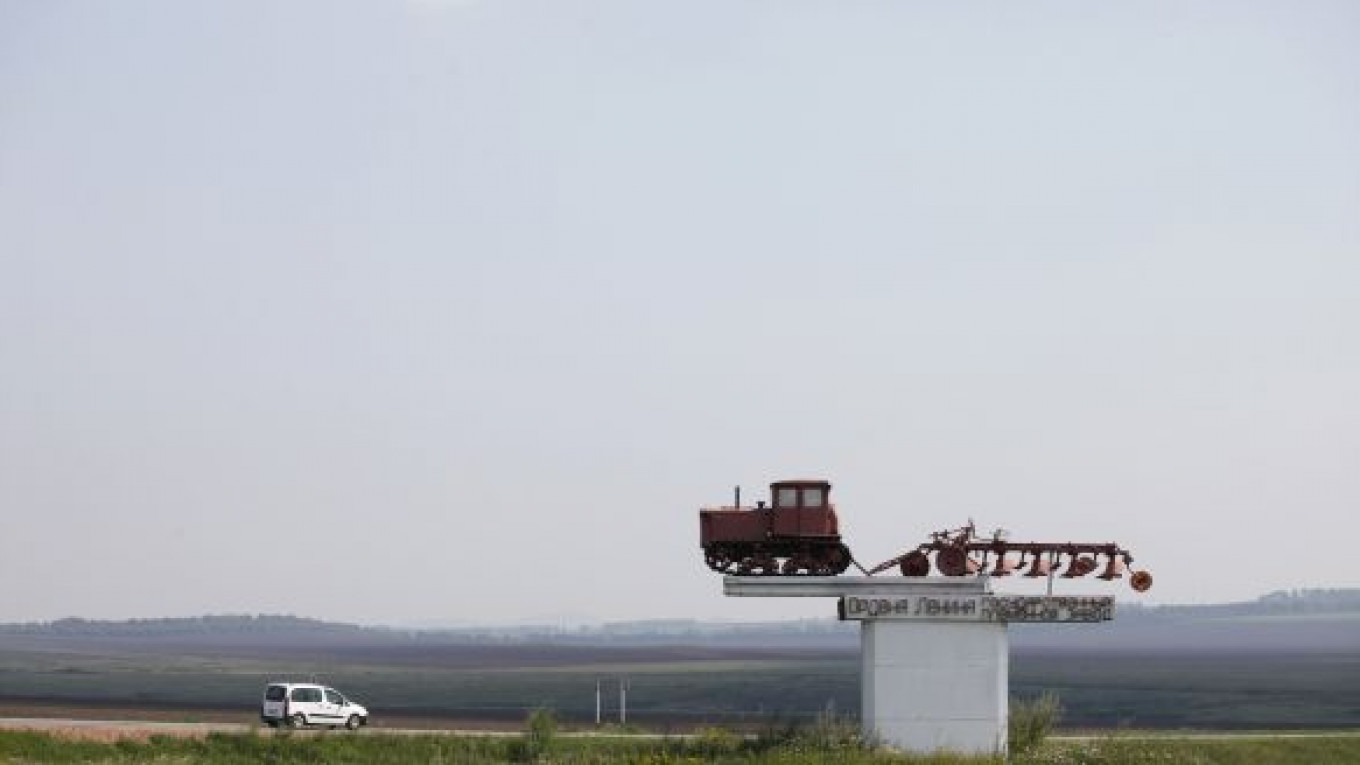Most of the Volga area, the southern part of the Urals area and western Siberia's southwest were affected by heat and dryness in the past 10 days, potentially harming crops, the national weather center said.
Rainstorms in eastern parts of the Volga Federal District may improve the condition of late spring crops including barley and wheat after the dry weather, Anna Strashnaya, head of agrometeorological forecasts at the Federal Hydrometeorological Center, said by phone from Moscow on Friday. The rains hampered harvesting of other local crops, she said.
The Volga Federal District accounted for 23 percent of the national grain crop last year, reaping 21.2 million tons, according to government statistics. The Siberian and Urals federal districts accounted respectively for 16 percent and 7.8 percent of the harvest, gathering 14.6 million and 7.3 million tons of cereals.
Rains stalled reaping in the Stavropol region and North Caucasus republics and the southern Krasnodar region, the main cultivation areas for grain for export, from the end of June until July 12, Strashnaya said. Weather turned favorable starting July 13 and farmers resumed grain harvesting. Rainy weather aided sugar beets, potatoes and sunflowers in those areas, she said.
The regions lie in the Southern and North Caucasus federal districts, which together accounted for 35 percent of last year's national grain crop with a 32.6 million-ton harvest, the statistics showed.
The Agriculture Ministry expects this year's grain crop to fall to 80 million to 85 million tons because of a drought in the south and the Volga and Siberian regions. Last year's harvest amounted to 94.2 million tons.
A Message from The Moscow Times:
Dear readers,
We are facing unprecedented challenges. Russia's Prosecutor General's Office has designated The Moscow Times as an "undesirable" organization, criminalizing our work and putting our staff at risk of prosecution. This follows our earlier unjust labeling as a "foreign agent."
These actions are direct attempts to silence independent journalism in Russia. The authorities claim our work "discredits the decisions of the Russian leadership." We see things differently: we strive to provide accurate, unbiased reporting on Russia.
We, the journalists of The Moscow Times, refuse to be silenced. But to continue our work, we need your help.
Your support, no matter how small, makes a world of difference. If you can, please support us monthly starting from just $2. It's quick to set up, and every contribution makes a significant impact.
By supporting The Moscow Times, you're defending open, independent journalism in the face of repression. Thank you for standing with us.
Remind me later.






